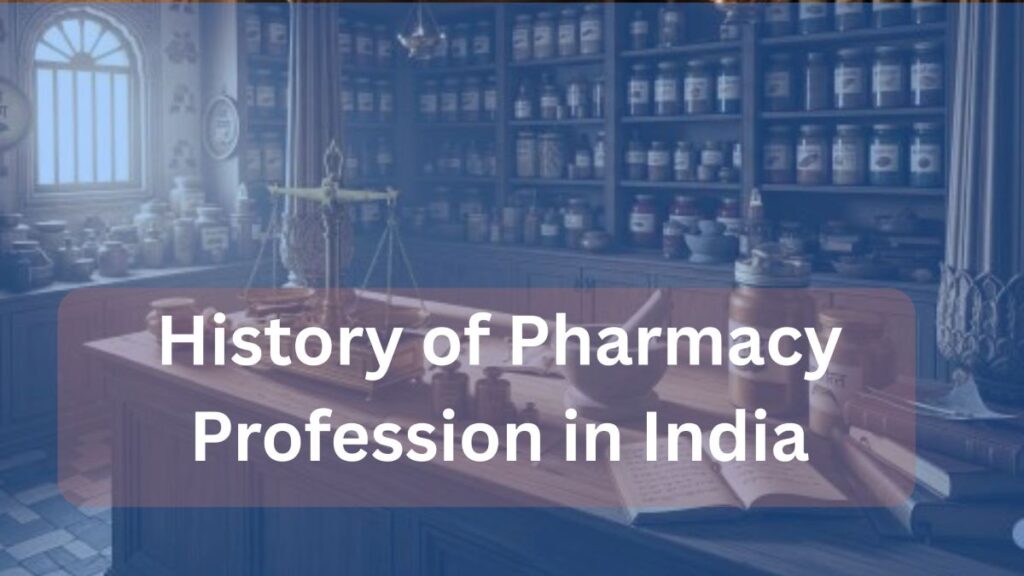In India, where healthcare is a critical aspect of daily life, community pharmacists play an important role in bridging the gap between medical professionals and the public. Often referred to as the “neighborhood chemist,” a community pharmacist is much more than just a dispenser of medicines. They are healthcare professionals who work in retail or independent pharmacies, serving as a vital link in the healthcare system. This article explains the topic of what is a community pharmacist and roles and responsibilities of community pharmacists in India.
What is a Community Pharmacist?
A community pharmacist is a qualified professional with a degree in pharmacy (B.Pharm, D.Pharm, or higher qualifications like M.Pharm) who works in a community pharmacy setting. These pharmacies are typically standalone shops or part of a chain, located in urban and rural areas across India. They are registered with the Pharmacy Council of India (PCI) and licensed to dispense prescription and over-the-counter (OTC) medications.
Unlike hospital pharmacists who work within medical institutions, community pharmacists operate in local settings, making them easily accessible to the general public. They are often the first point of contact for individuals seeking healthcare advice or medications, especially in areas where access to doctors or hospitals may be limited.
Roles and Responsibilities of a Community Pharmacist in India
Community pharmacists in India wear multiple hats, combining clinical expertise, patient counseling, and business management. roles and responsibilities of community pharmacist include:
- Dispensing Medications:
The primary role of a community pharmacist is to accurately dispense prescription medications as prescribed by doctors. They ensure the correct dosage, check for potential drug interactions, and verify the authenticity of prescriptions to prevent misuse.
- Patient Counseling:
Community pharmacists educate patients on how to take their medications, potential side effects, and precautions. In India, where health literacy may vary, pharmacists often explain instructions in local languages to ensure patients understand their treatment plans.
- Health and Wellness Advice:
Beyond dispensing medicines, community pharmacists offer guidance on minor ailments like colds, allergies, or digestive issues. They recommend appropriate OTC medications and advise when to seek a doctor’s consultation.
- Chronic Disease Management:
With the rising prevalence of chronic conditions like diabetes, hypertension, and asthma in India, community pharmacists play a crucial role in helping patients manage these conditions. They monitor medication adherence, provide lifestyle advice, and sometimes offer basic diagnostic services like blood pressure or glucose checks.
- Promoting Public Health:
Community pharmacists in India often participate in public health campaigns, such as vaccination drives, awareness programs for diseases like tuberculosis or dengue, and initiatives to combat counterfeit drugs. They also educate communities about the safe disposal of unused medicines.
- Inventory and Business Management:
Running a pharmacy involves managing stock, ensuring the availability of essential medicines, and adhering to regulations set by the Drugs Controller General of India (DCGI). Pharmacists must also stay updated on new drugs and generics entering the market.
The Importance of Community Pharmacists in India
Community pharmacists are integral to India’s healthcare ecosystem for several reasons:
- Accessibility:
With pharmacies located in almost every neighborhood, community pharmacists are often more accessible than doctors or hospitals, especially in rural and semi-urban areas. They provide immediate assistance for minor health issues, reducing the burden on hospitals.
- Affordability:
In a country where healthcare costs can be a concern, community pharmacists offer affordable solutions by recommending cost-effective generic medicines or OTC products.
- Trust and Familiarity:
In India, pharmacists often build long-term relationships with their customers, fostering trust. Many people rely on their local chemist for advice on recurring health issues or family healthcare needs.
- Bridging Healthcare Gaps:
In areas with limited access to doctors, community pharmacists act as frontline healthcare providers. They guide patients on managing minor ailments and refer them to medical professionals when necessary.
Challenges Faced by Community Pharmacists in India
Despite their critical role, community pharmacists in India face several challenges:
- Lack of Recognition: Community pharmacists are often seen merely as medicine sellers rather than healthcare professionals, limiting their ability to contribute fully to the healthcare system.
- Lack proper administration of Law: Even though India has made good law for the control practice of Pharmacy the enforcement of this law into the root level is still incomplete. There are so many non qualified persons dispensing medicines in most of the community pharmacies in India.
- Competition from Online Pharmacies: The rise of online pharmacies in India has increased competition, impacting the business of traditional community pharmacies.
- Limited Training Opportunities: Continuous professional development is essential, but many pharmacists lack access to regular training on new drugs, technologies, or patient counseling techniques.
Conclusion
Community pharmacists in India are an integral part of the healthcare system, providing accessible, affordable, and reliable healthcare services to millions. Beyond just dispensing medicines— community pharmacists educate, counsel, and support communities in maintaining their health. As India’s healthcare landscape continues to evolve, the role of community pharmacists will only grow in importance, making them indispensable allies in the journey toward a healthier nation.



